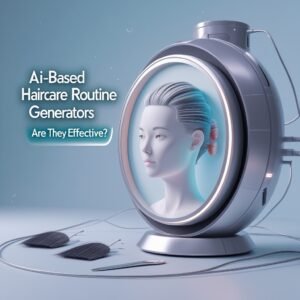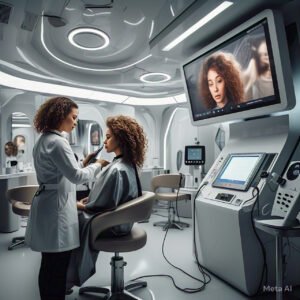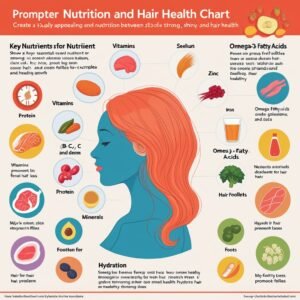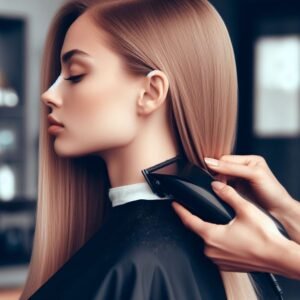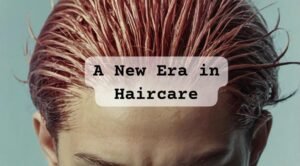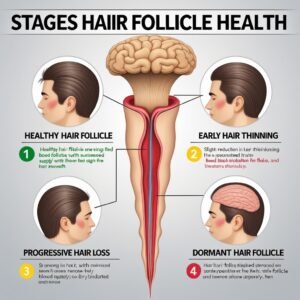Introduction:
In the ever-evolving beauty industry, AI has carved a niche, offering personalized solutions from skin diagnostics to haircare. AI-based haircare routine generators promise tailored regimens by analyzing individual needs. But do they deliver? Let’s explore their mechanics, benefits, limitations, and real-world efficacy.
How Do AI Haircare Generators Work?
These tools leverage algorithms to create customized routines through:
-User Input: Queries about hair type (curly, straight), texture, concerns (frizz, damage), and lifestyle.
– Image Analysis: Some apps use ML to assess hair health via photos, detecting split ends or dryness.
– Environmental Data: Climate and humidity levels to recommend hydrating or anti-frizz products.
– Product Databases: Cross-referencing ingredients with user needs to suggest optimal products.
Benefits of AI-Driven Haircare
1. Personalization: Moves beyond one-size-fits-all, addressing unique hair goals.
2. Convenience: Accessible 24/7, saving salon visits.
3. Expertise Integration: Draws from dermatological research and stylist insights.
4. Cost-Effective: Affordable alternative to high-end consultations.
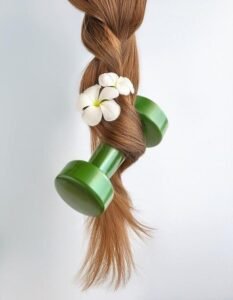
Limitations to Consider
– Data Reliance: Accuracy hinges on user input quality; vague answers may skew results.
– Lack of Human Touch: No physical examination, unlike a stylist who can feel hair texture.
– Privacy Concerns: Sharing personal data raises questions about security.
– Overconsumption Risk: May promote excessive product use, impacting wallets and the environment.
Expert Opinions
Dermatologists acknowledge AI’s potential but caution against replacing professionals for complex issues. Stylist *Jane Doe* notes, “AI is great for maintenance but can’t replicate nuanced human judgment.”
User Experiences
Reviews are mixed. Some praise improved hair health (e.g., reduced breakage via Function of Beauty’s AI), while others report generic advice. Curly-haired users highlight apps like Prose for catering to specific curl patterns, though results vary.
Future Outlook
Advancements in AI training with diverse datasets and integration with IoT devices (e.g., smart mirrors) could enhance precision. Brands may adopt AR for virtual product trials, boosting confidence in recommendations.
Tips for Maximizing Effectiveness
1. Be Detailed: Provide thorough input on hair history and goals.
2. Combine with Professional Advice: Use AI as a supplement, not a replacement.
3. Patch Test: Always test recommended products to avoid reactions.
Conclusion
AI haircare generators are effective for many, offering science-backed convenience, but they’re not foolproof. Success depends on data quality and individual variability. As technology evolves, these tools may become indispensable, yet human expertise remains irreplaceable for complex needs. For now, they’re a promising step toward democratizing personalized haircare.
Final Verdict: Worth trying for routine maintenance and product discovery, but pair with professional guidance for persistent issues. The future of haircare is hybrid—blending AI efficiency with human insight.
